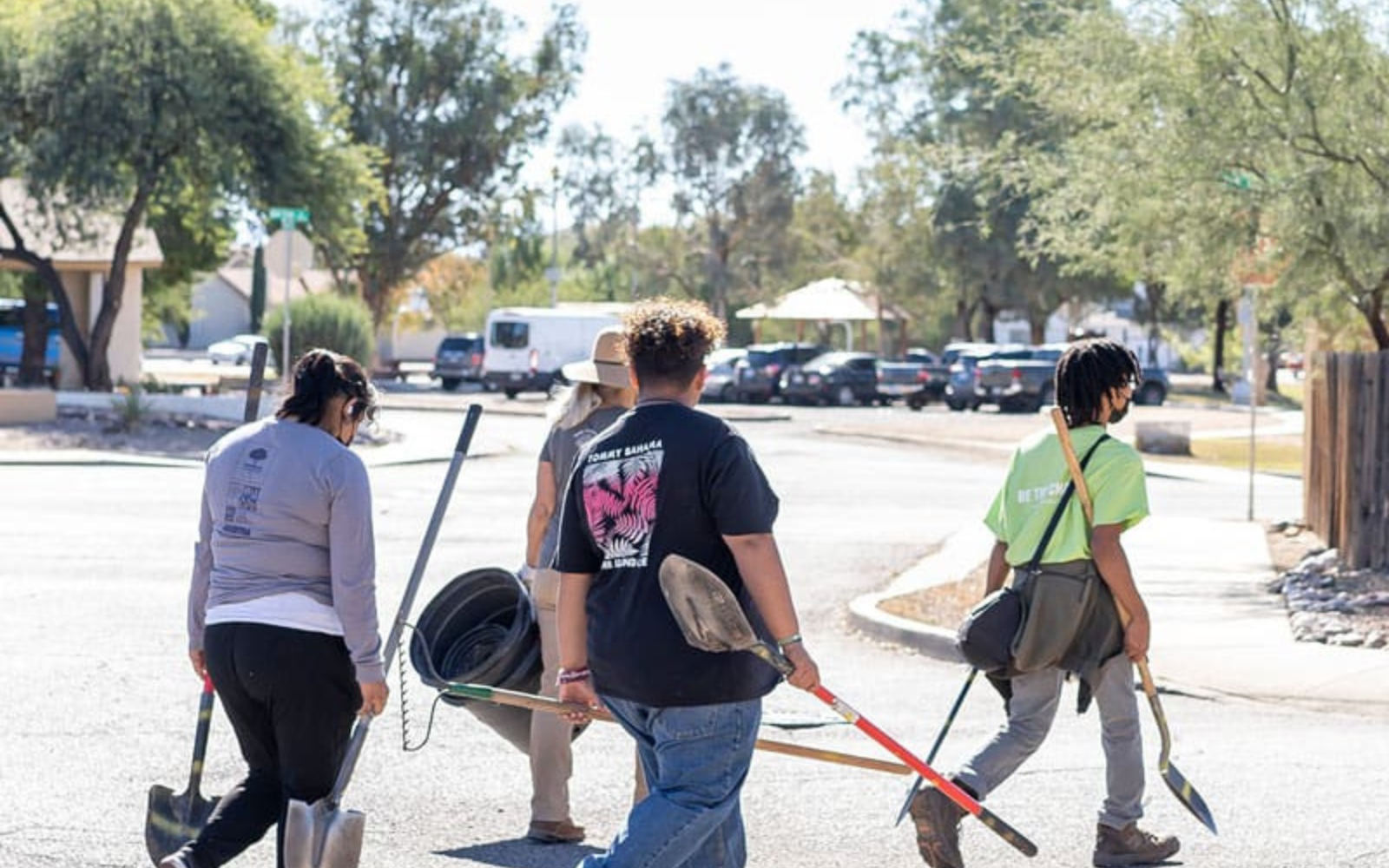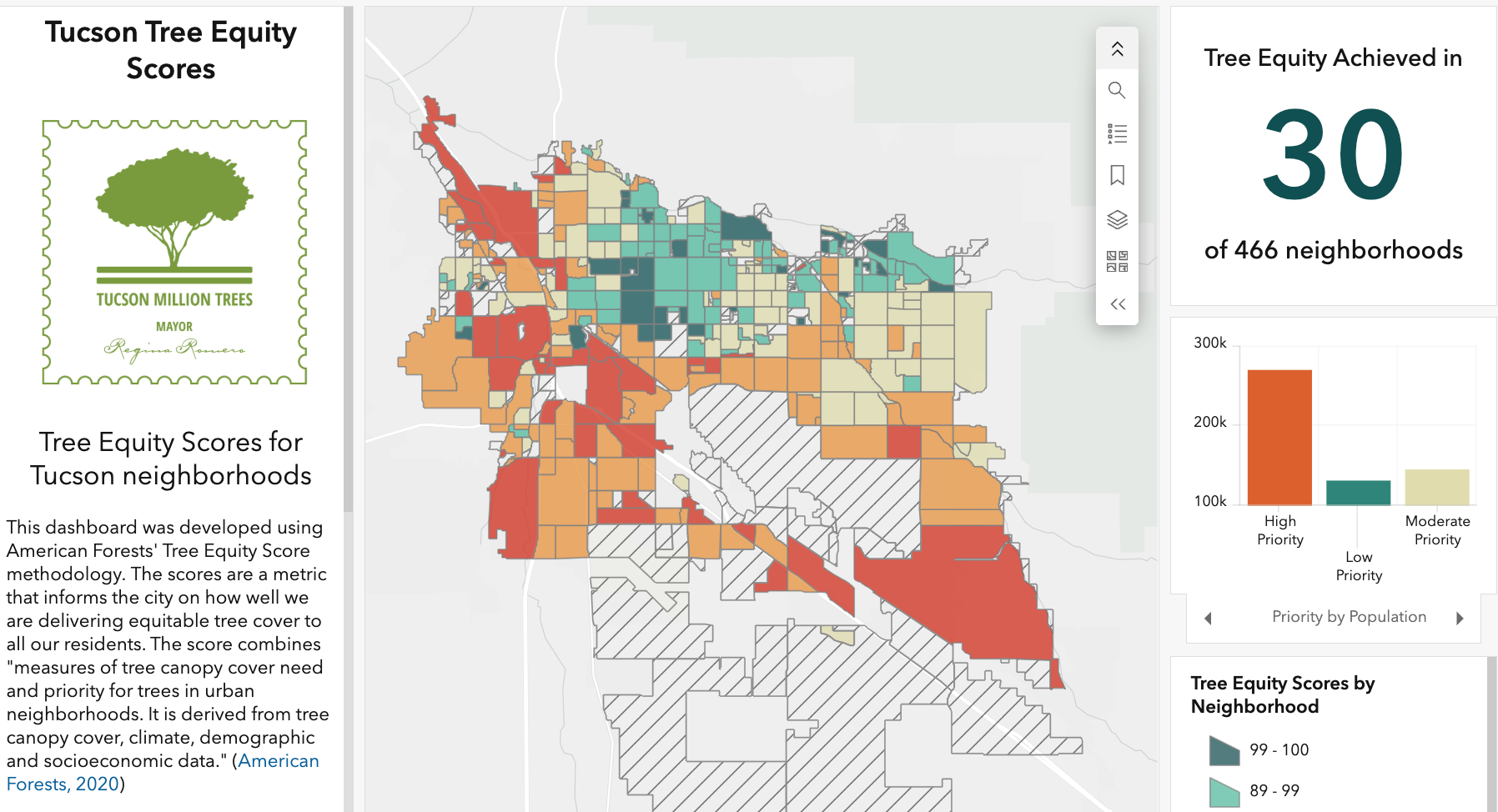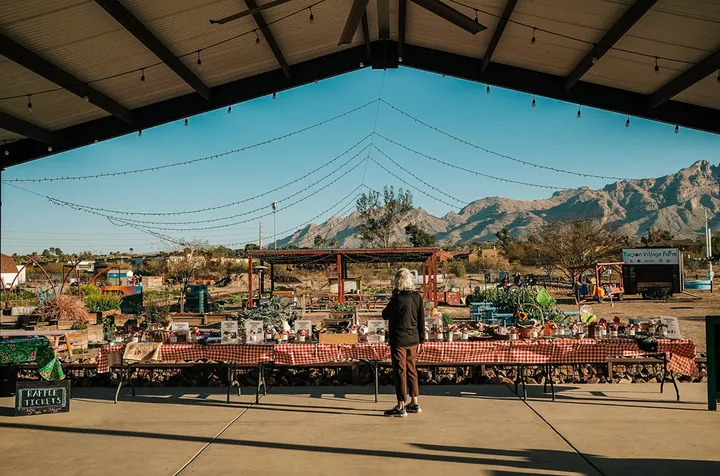Teens grow leadership, plant trees in Tucson
Tucson Clean & Beautiful’s Youth Tree Leaders program teaches teenagers leadership and environmental stewardship while planting hundreds of trees each year in neighborhoods with low canopy coverage.

Tucson teens are transforming their neighborhoods and gaining leadership skills through Tucson Clean & Beautiful’s “Youth Tree Leaders” program, which plants hundreds of trees each year in areas with low canopy coverage.
The nonprofit environmental advocacy group recently closed applications for the latest cohort of the program, which is aimed at teaching teenagers to care for their communities while increasing the city’s shade canopy.
Sasha Timpson has worked with Tucson Clean & Beautiful since early 2023, leading stormwater crews, workforce programs for young adults and volunteer initiatives, before taking on the Youth Tree Leaders program.
The program offers paid opportunities for teens and aims to plant roughly 2,000 trees each year.
“We predominantly plant in neighborhoods in Tucson that have a low tree equity score, meaning that they have a low tree canopy across the geographic area of their neighborhoods, which has been shown to be correlated with all sorts of demographics within the tree equity score that relate to … worse health or lower economic income, things like that,” Timpson said.
The program also aims to engage young people, especially in disinvested neighborhoods.
They said that for some students, the program provides a leg up in a career in environmentalism or advocacy, while for others, it offers a way to stay out of trouble. Timpson said any motivation is welcome, as long as the students are willing to put in the work.
“They're really treated like professionals and part of the workforce within the program,” Timpson said. “I think we all reap the benefit of this goal, which is just learning how to care for our community.”

Timpson said the lessons extend beyond environmental skills and also touch on how students interact with one another and their neighborhoods.
“These kids learn a lot more about stewarding the areas around them, and how we do that with trees and each other, ultimately,” Timpson said.
The program currently has 37 students and an extensive waitlist. Prospective participants can still contact Tucson Clean & Beautiful to join the waitlist or explore other volunteer opportunities in the meantime.
In addition to planting trees and helping curate neighborhoods, Timpson says the students cultivate confidence.
“They are developing confidence. They're developing relationships with each other. They're developing relationships with the trees that they're planting,” Timpson said. “They're developing relationships to their communities in Tucson, maybe they haven't spent much time in.”
Timpson also says that the students who participate have retained the information they’ve learned and seem to really connect with what they are learning.
“They've planted so many trees at this point, and they've really learned this stuff inside out,” Timpson said. “The kids who have been there before … do become leaders on this. They really know what they're doing, and they act with a lot of professionalism and a lot of compassion for each other and commitment to the job that they're in, and they really take it seriously.”

Timpson says the program has grown since it first began, in part due to more interest from students and requests from the community to increase shade and native plants.
“It seems natural to me that as we become more organized and our presence in the city increases, more students find out about it, and they want to get involved,” Timpson said.
The program focuses primarily on native plants or, occasionally, what Timpson calls “naturalized desert adaptive plants.” These are plants that are not native but have been altered so as not to affect the primary desert ecosystem.
Incorporating native plants into home landscaping can increase the resale value of a property by up to 15% and provide habitats for songbirds, insects and backyard pets, according to Tucson Clean & Beautiful.
According to Timpson, the program primarily plants willows, ironwoods, acacias and other species. The group also coordinates with neighborhood HOAs to ensure the trees comply with community guidelines.
Timpson says that engaging in this work at a young age gives many students a leg up when applying for future jobs, helping them build connections and gain experiences that many peers do not have.
“I’m just generally (supportive of) investing in kids,” Timpson said. “(They’re) really competent and curious and really awe-inspiring, coworkers.”
Emma LaPointe is a journalism, political science and German Studies major at the University of Arizona and Tucson Spotlight intern. Contact her at emma.m.lapointe@gmail.com.
Tucson Spotlight is a community-based newsroom that provides paid opportunities for students and rising journalists in Southern Arizona. Please consider supporting our work with a tax-deductible donation.



